
#pathwaysto2030
Welcome to WBA’s online hub for the global biogas industry’s commitment to reduce global GHG emissions by 10% by 2030. Scroll down to find the latest research and advocacy and explore ways you can get involved.
We have less than 10 years to prevent the irreversible impacts of climate change. The United Nations’ IPCC Special report of 2018 states that action must be taken by 2030 to prevent global warming above 1.5ºC.
There is no time to waste in the fight against climate change. All countries and industries must cut greenhouse gas (GHG) emissions immediately, covering all sectors and drawing on all technologies and knowledge. Often overlooked, organic waste represents a key sector in urgent need of decarbonisation.
AD has the potential to reduce global GHG emissions by 10% by 2030. And it is time to act now.
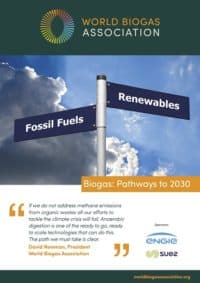
New report
Biogas: Pathways to 2030
Read the report to find out…
- how human activity every year generates over 105 billion tonnes of organic wastes, emitting methane. By recycling these organic wastes, the biogas industry can enable countries to deliver a 10% reduction in worldwide greenhouse gas emissions by 2030
- the pathways to put humanity back on track to deliver on the ambitions of the Paris Agreement and UN Sustainable Development Goals
- toolkits for political leaders to improve policies and regulation
WBA hosted an online event for the report on 29th March, 2021 to launch the report. Dr Nick Primmer, Market and Policy Analyst, at the World Biogas Association is the lead author of the report. He presented the key findings at the event. Aleksandra Tomczak, Member of Cabinet of the Executive Vice President Frans Timmermans at the European Commission, delivered a keynote address. The report sponsors were guest speakers: Marta Kamola-Martines, Head of Biogas, Engie, and Amaya Arias-Garcia, Lead AD Expert, Suez International. David Newman, President of the World Biogas Association, chaired the meeting. And participants from around the world joined-in to watch and ask questions.
Watch the video recording of the event below.
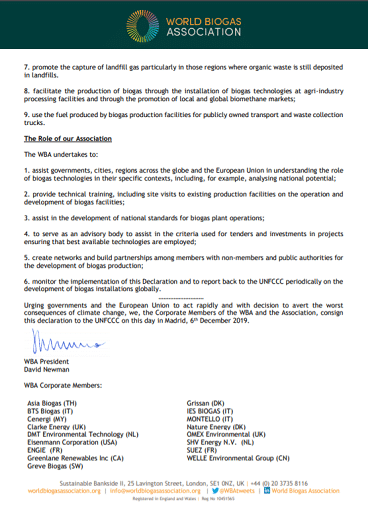
Biogas and Climate Change Commitment Declaration
In their Biogas and Climate Change Commitment Declaration, unveiled in November 2019, biogas industry leaders call on world governments to unlock the sector’s considerable potential towards meeting their Paris Agreement targets. In return, they commit to putting their full human, financial and technological resources behind enabling the rapid expansion of biogas in all parts of the globe.
WBA presented the Declaration in December 2019 to the UNFCCC at COP25 in Madrid.
WBA also co-hosted a webinar with the UN’s Climate & Clean Air Coalition (CCAC) about COP25 and the Declaration.
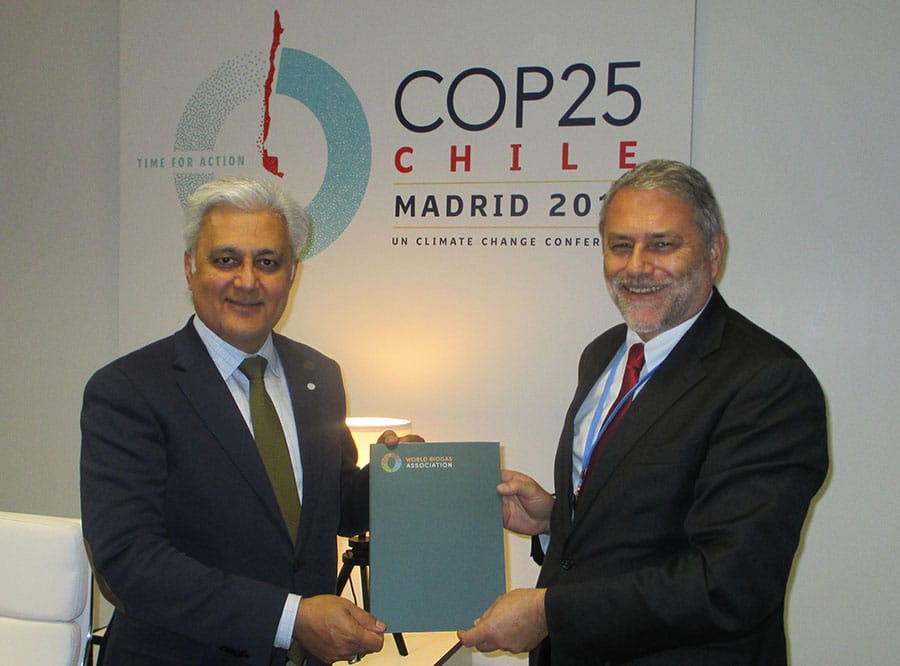
In December 2019, at the UNFCCC Conference of Parties in Madrid (COP25), David Newman, President of the World Biogas Association (WBA) presented H.E. Mr Ovais Sarmad, Deputy Executive Secretary of the United Nations Climate Change Secretariat, with WBA’s Biogas and Climate Change Commitment Declaration.
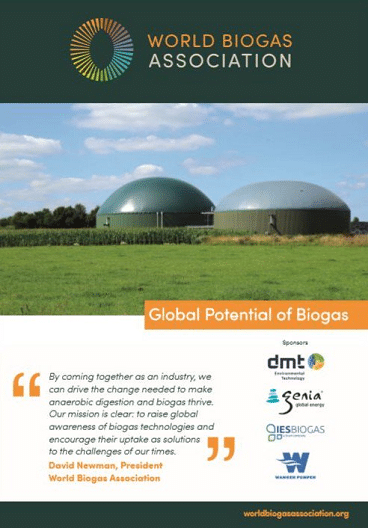
2019: Global potential of biogas
WBA published a landmark report in 2019 on the “Global Potential of Biogas.” The key finding of this report is that AD has the potential to reduce global GHG emissions by 3,290 to 4,360 Mt CO2 eq., which is equivalent to 10-13% of the world’s current greenhouse gas emissions. This is achieved through the generation of renewable energy in the form of biogas from the anaerobic digestion of wastes and landfill gas, combined with emissions avoided through the management of organic wastes and avoided fossil fertiliser manufacture, crop burning and deforestation, using technology available and widely used today.
The report was launched at the World Biogas Summit on 3rd July, 2019.
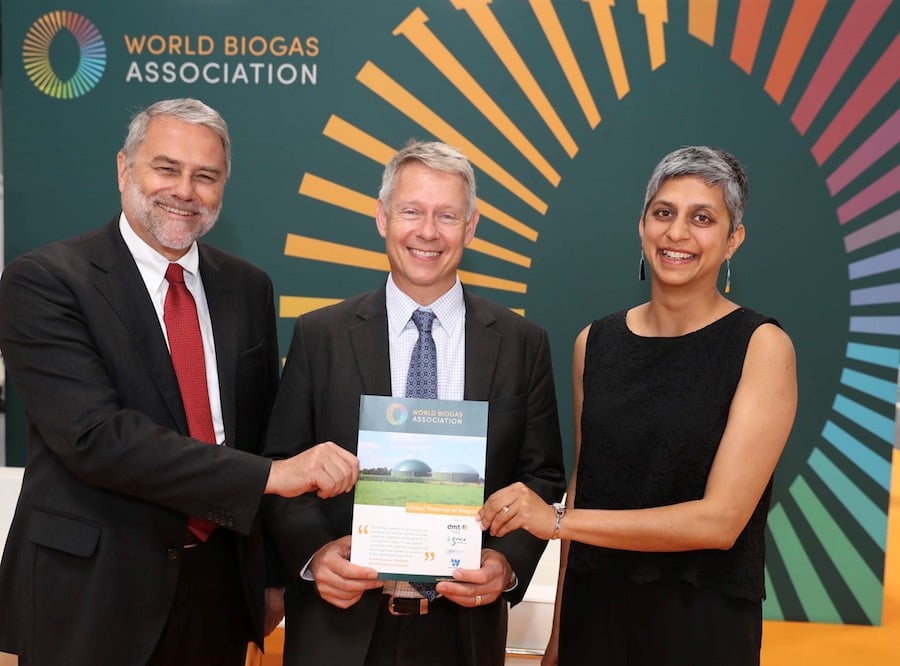
WBA President David Newman (left) and Dr Sarika Jain, author (right), present the Global Potential of Biogas report to Niclas Svenningsen, of the UNFCCC, at the World Biogas Summit 2019.

